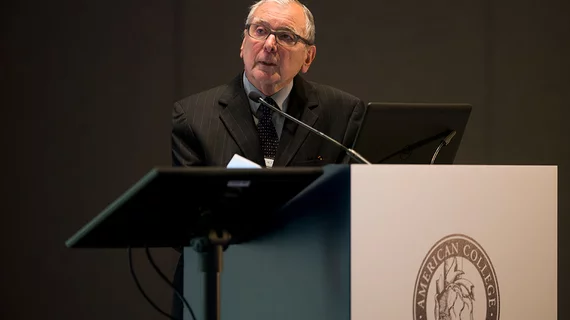Former ACC president Alfred Bove passes at 81
Former American College of Cardiology President Alfred A. Bove, MD, PhD, MACC, passed away Oct. 17.
Bove served as president of the ACC from 2010 to 2011, according to a release, and was on the College’s Board of Trustees from 2002 until 2013. He died at age 81, reportedly from complications of glioblastoma.
The former president took on a host of other roles at the ACC, including editor-in-chief of ACCEL, the ACC’s audio journal, and ACC’s Cardiology member magazine. He served as the first editor-in-chief of the College’s original CardioSource.com website and helped shape numerous policies and guidelines in the field.
“Aside from his obvious talent as a cardiologist and an investigator, Fred was a spectacular human being and a bit of a Renaissance man who was as enthusiastic about deep sea diving as he was cardiology,” past ACC president and former JACC editor-in-chief Anthony N. DeMaria, MD, said in a statement. “He had a deep down integrity and his thoughtfulness and kindness were unmatched. He epitomized everything you could ever want in a leader.”
After spending his undergraduate years studying electrical engineering at Drexel University and earning his medical and doctor of physiology degrees from Temple University Medical School, Bove served two years in the U.S. Navy as an undersea medical officer. He went on to author more than 200 original research papers on topics like coronary disease, exercise medicine and diving medicine.
“Dr. Bove was a warm, sincere and beneficent physician who always put the interest of the patient first,” ACC Executive Vice President William J. Oetgen, MD, said. “He is, and always has been, an inspiration to those cardiologists who follow behind him.”

